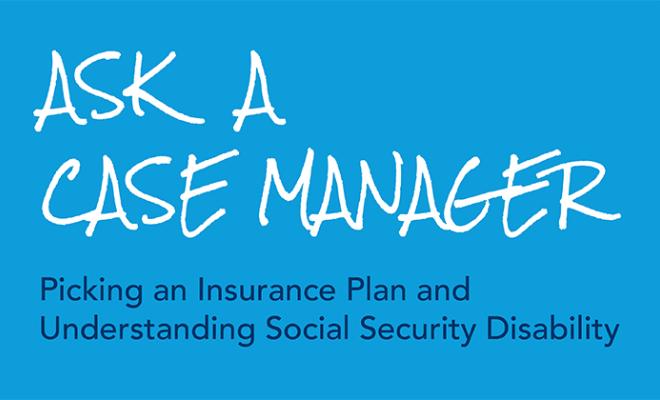Since Cystic Fibrosis Foundation Compass launched last year, our team of experienced case managers has fielded more than 5,000 requests for help from people with cystic fibrosis and their families as they navigate complex insurance, financial, legal, and other issues related to life with the disease. In an effort to continue expanding our assistance to the CF community, we are excited to unveil the new “Ask a Case Manager” blog series, where we will take questions from the CF community and publish answers written by the same Compass case managers that answer your calls and work one-on-one with you every day.
For our first post, we will be answering questions about health insurance, living expenses, and clinical trials:
“I have CF and have just been offered a job, which I've decided to take. But, I'm a bit confused about if I should enroll in coverage through my employer or stay on my parent's plan for now. Do you have any advice?" -- Keith, 25, California
Many people with CF are concerned about getting or keeping health insurance, and the different types of plans can be confusing. The first step is to confirm that your employer's options provide enough coverage for your needs. Our Benefit Assessment Checklist can help with this.
Since you will be “aging out” of your parent's plan when you turn 26, you will need to decide when to make the switch so you are not potentially facing two deductibles within the same year. There are many factors that affect the decision, such as the open enrollment period offered by your employer and special enrollment period eligibility if you would like to stay on your parent's plan. A Compass case manager can provide you with a side-by-side plan comparison and give you information to help you decide. -- Hajin, Compass Case Manager
“Where can I get help paying for living expenses?” -- Keily, 31, Massachusetts
We have heard from many people in the community who are having trouble covering living expenses, such as rent or utilities. Fortunately, there are many programs offered by non-profit, government, and other private organizations to help with different living expenses. For example, we've found local programs that help people pay for food, car payments, home repairs, and much more. If you call Compass, a case manager can help you search for these organizations and walk you through the application process. We can also talk with you about other ideas that may help financially. -- Aaron, Compass Case Manager
“Is it possible to get supplemental insurance? My granddaughter has coverage under her dad's plan at work, but I wanted to see if we could get a second insurance to help cover costs.” -- Janice, 61, Kansas
Supplemental and secondary insurance plans are extra or additional insurances that can potentially assist with paying for services or out-of-pocket expenses that your primary insurance does not cover. The following are some secondary and supplemental insurance options to consider:
- Medicaid: Depending on income and other eligibility requirements, you may qualify for Medicaid.
- Children's Health Insurance Program (CHIP): CHIP provides low-cost health coverage to children in families with incomes too high to qualify for Medicaid.
- Chronic needs programs: Depending on the state in which you reside, you may qualify for special programs that are designated for children or adults with special needs or specific genetic diseases.
- Dependent coverage: Dependent coverage is insurance coverage extended from a subscriber to a qualifying dependent.
You should also make sure that the out-of-pocket costs not covered by your current coverage would be covered by your secondary insurance, and that the cost of the insurance is worth the benefits you'd receive. There may also be programs to help further reduce out-of-pocket costs for medications. As Hajin mentioned above, a Compass case manager can provide you with a side-by-side plan comparison and give you information to help decide whether supplemental insurance is right for your family. -- Heather, Compass Case Manager
“How do I sign up for any clinical trials?” -- Michelle, 34, Nevada
Participating in a clinical trial can be a rewarding and worthwhile experience. There are clinical trials for therapies to treat the underlying cause of CF, as well as others that treat CF symptoms to improve quality of life.
You can find clinical trial options with our easy-to-use Clinical Trials Finder. This tool allows you to choose your own criteria to identify open trials using factors such as your age, where you live, and how far you would consider traveling to participate in a trial. The Finder also allows you to identify where the trial is being conducted, including the state and the specific facility. Once you find a trial you're interested in, you'll be able to email each clinical trial's research coordinator for answers to questions you have about that study and see if you are eligible. -- Bruce, Compass Case Manager
If you are dealing with any of these or other issues, a Compass case manager can work with you to understand your options. Call us at 844-COMPASS (844-266-7277) Monday - Friday, 9 a.m. - 7 p.m. ET, or email us at compass@cff.org. You can also submit your own question for the next edition of Ask a Case Manager.
We look forward to continuing to help the CF community navigate their challenges to live full, productive lives.









